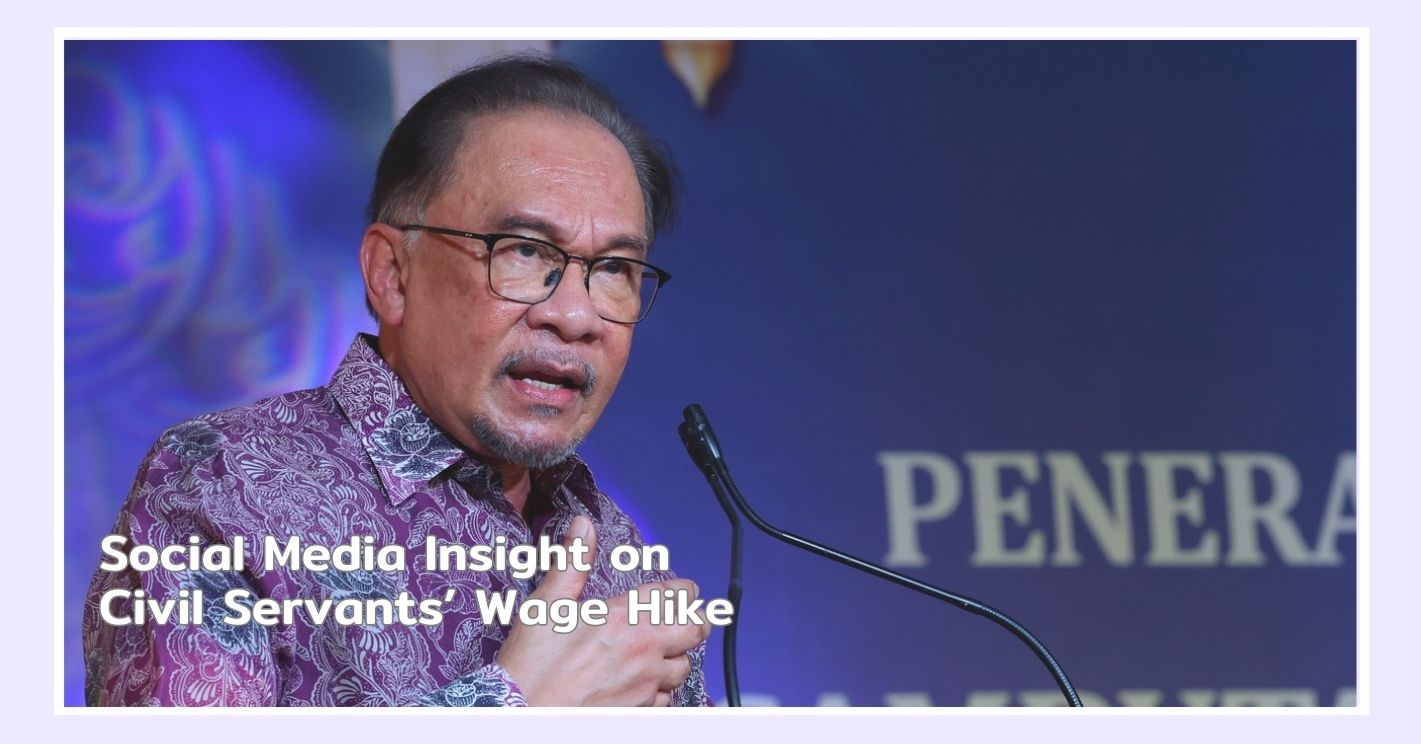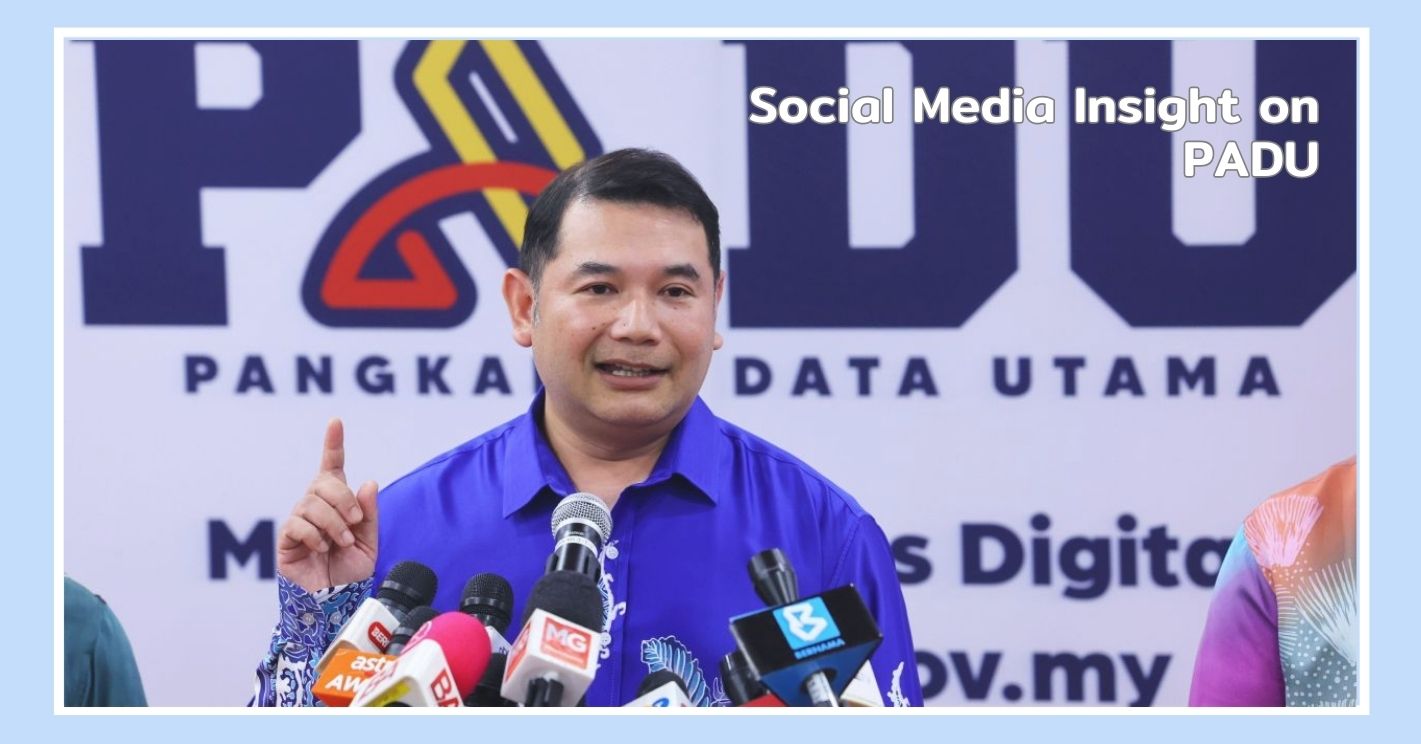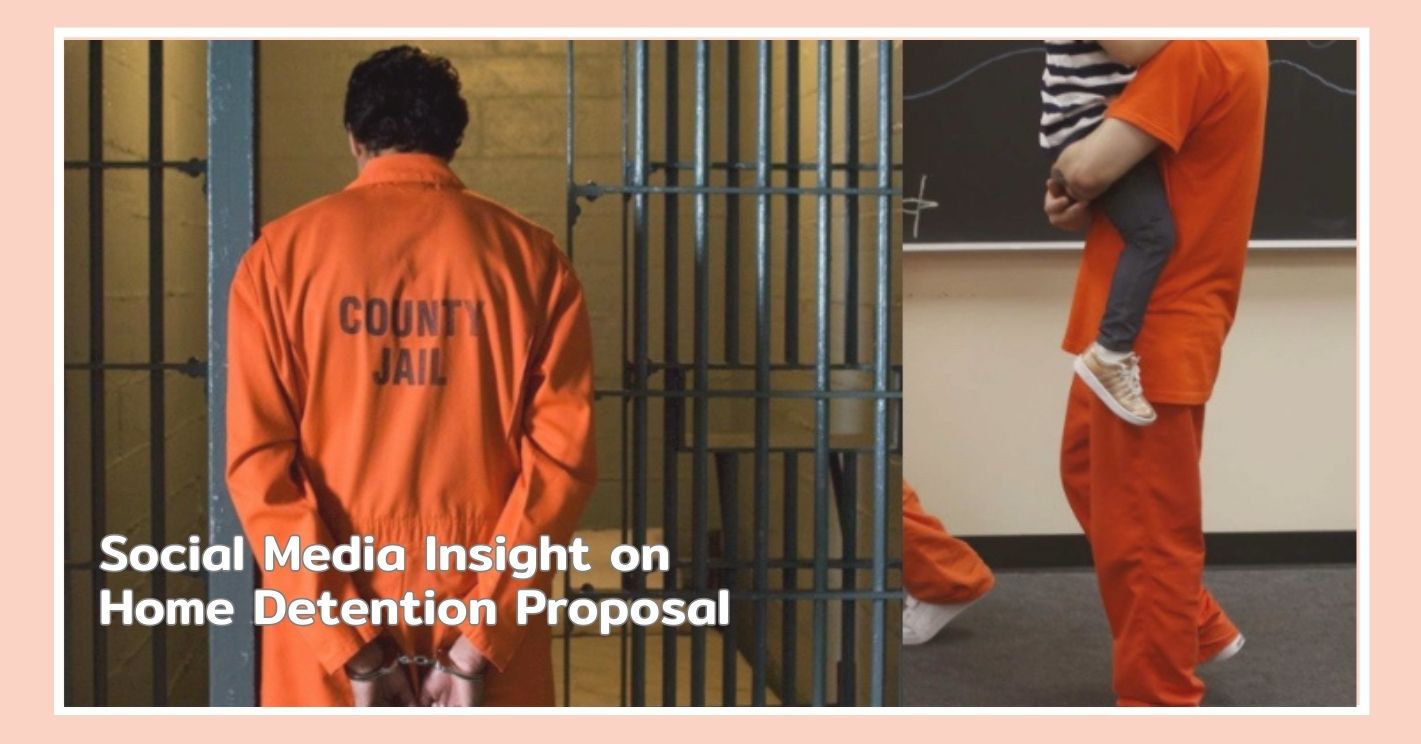During the Labour Day celebration, Anwar Ibrahim announced the 13% wage increase for the government sector starting this December, perceived as the highest increment ever received in history.
Insight:
- The conversations on the Civil Servants’ Wage Hike garnered around 38K mentions with 291K social interactions that potentially reached 24.3M users for the past 7 days.
- The announcement of a significant wage hike, exceeding 13%, for government servants by Anwar has sparked varied public perceptions. While many civil servants and their families welcome the news with open arms, seeing it as a long-overdue recognition of their contributions and a potential improvement in their standard of living, there are concerns brewing within the wider community.
- One of the primary worries revolves around the potential inflationary impact of such a substantial wage increase. Some members of the public fear that this sudden injection of additional income into the pockets of government employees could lead to a surge in demand for goods and services, ultimately driving up prices across the board. This could adversely affect consumers’ purchasing power and exacerbate cost-of-living pressures for those not directly benefiting from the wage hike.
- Another contentious issue is the perceived fairness of the wage hike. Critics argue that not all government employees merit such a significant raise, pointing to instances of underperformance and inefficiency within certain sectors. There’s a sentiment that rewarding all civil servants indiscriminately could foster complacency and undermine the principle of meritocracy. This debate has reignited discussions about the need for performance-based remuneration systems within the public sector to ensure accountability and productivity.
- Moreover, healthcare workers, in particular, have voiced disappointment with the magnitude of the wage increase. Many frontline workers, who have been tirelessly battling the COVID-19 pandemic, feel that the increment falls short of adequately recognizing their sacrifices and dedication. Some argue that given the demanding nature of their profession and the risks they face daily, they deserve a more substantial raise to reflect their invaluable contributions to society.
- In essence, while Anwar’s announcement of a wage hike for government servants has generated positive reactions within certain quarters, it has also brought to the fore a spectrum of concerns regarding its broader implications. Balancing the need to uplift public sector morale with addressing inflationary pressures and ensuring equitable distribution of rewards remains a formidable challenge for policymakers moving forward.









